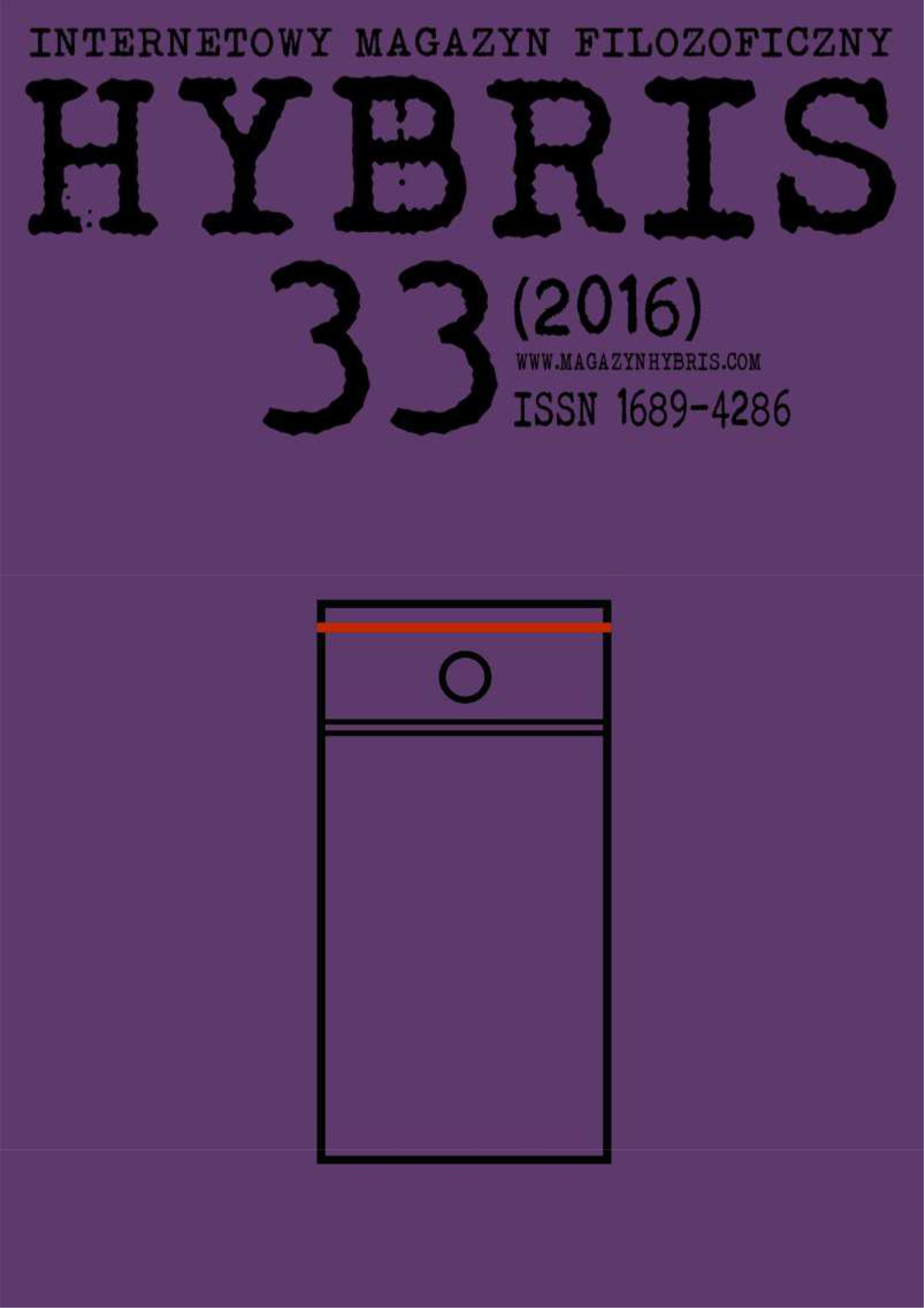The beginnings of cinema. Philosophical inquiries
DOI:
https://doi.org/10.18778/1689-4286.33.08Keywords:
cinema, movie, beginnings, Plato’s cave, impression of realityAbstract
This article centres on the beginnings of the art of cinematography as viewed from a philosophical perspective. Every art form has its beginnings, and cinema is no exeption. Nevertheless, some film theorists, as Jean Louis Baundry, have challenged this view: cinema has no genesis and no single discovery from which it sprung. The purpose of this article is to analyse these arguments in the light of the theories found in Greek philosophy.
References
Altick, Richard, Daniel, 1978, The Shows of London. A Panoramic History of Exibitions, Cambridge: The Belknap Press of Harvard University Press.
View in Google Scholar
Arystoteles 1996, Metafizyka, t. 1, oprac. Mieczysław Albert Krąpiec, Andrzej Maryniarczyk na podst. przekł. Tadeusza Żeleźnika, Lublin: RW KUL.
View in Google Scholar
Cornford, Francis, Macdonald, 1941, The Republic of Plato, Oxford: Oxford University Press.
View in Google Scholar
Baudry, Jean-Louis, 1974/75, Ideological Effects of the Basic Cinematographic Apparatus, trans. Alan Williams, “Film Quarterly”, vol. XXVIII, no. 2, ss. 39–47.
View in Google Scholar
DOI: https://doi.org/10.1525/fq.1974.28.2.04a00080
Baudry, Jean-Louis, 1985, Ideologiczne skutki funkcjonowania aparatu filmowego, przeł. A. Helman, „Powiększenie”, nr 1, ss. 5–12.
View in Google Scholar
Baudry, Jean-Louis, 1986, The Apparatus: Metapsychological Approaches to the Impression of Reality in the Cinema, [w:] Philip Rosen (ed.), Narrative, Apparatus, Ideology, New York: Columbia UP, ss. 690–707.
View in Google Scholar
Flusser, Vilém, 1997, Gest wideo, przeł. Andrzej Gwóźdź, [w:] Andrzej Gwóźdź (red.), Pejzaże audiowizualne. Telewizja, wideo, komputer, Kraków: Universitas, ss. 229–235.
View in Google Scholar
Friedberg, Anne, 2009, Mobilne i wirtualne spojrzenie w nowoczesności: flâneur/flâneuse, przeł. Monika Murawska, Michał Pabiś, Tomasz Sukiennik, Natalia Żurowska, [w:] Tomasz Majewski (red.), Nowoczesność i kultura popularna, Warszawa: Wydawnictwa Akademickie i Profesjonalne, ss. 59–102.
View in Google Scholar
Gwóźdź, Andrzej, 2014, Skąd się (nie) wzięło kino, czyli prahistorie obrazu w ruchu, [w]: Tadeusz Lubelski, Iwona Sowińska, Rafał Syska (red.), Historia kina, t. 1, Kino nieme, Kraków: Universitas, ss. 17–76.
View in Google Scholar
Helman, Alicja, 1986, Kino wymyślił Platon, „Kino”, nr 4, ss. 17–18.
View in Google Scholar
Irzykowski, Karol, 1977, X Muza. Zagadnienia estetyczne kina, Kraków: WAiF.
View in Google Scholar
Irzykowski, Karol, 1982, Dziesiąta Muza oraz Pomniejsze pisma filmowe, Kraków: Wydawnictwo Literackie.
View in Google Scholar
Kracauer, Siegfried, 1975, Teoria filmu. Wyzwolenie materialnej rzeczywistości, przeł. Wanda Wertenstein, Warszawa: WAIF.
View in Google Scholar
Metz, Christian, 1982, The Imaginary Signifier. Pscychoanalysis and the Cinema, trans. Celia Britton, Annwyl Williams, Ben Brewster, Alfred Guzzetti, Bloomington and Indianapolis: Indiana University Press.
View in Google Scholar
Morin, Edgar, 1975, Kino i wyobraźnia, przeł. Konrad Eberhardt, Warszawa: PiW.
View in Google Scholar
Stróżewski, Władysław, 2005, Istnienie i sens, Kraków: ZNAK.
View in Google Scholar
Zuska, Vlastimil, 2007, Film jako/i lustro. Analiza pewnej analogii, przeł. Anna Car, [w:] Andrzej Gwóźdź (red.), Czeska myśl filmowa, t. 2, Gdańsk: słowo-obraz-terytoria.
View in Google Scholar
Syska, Rafał, 2014, Początki kina amerykańskiego, [w:] Tadeusz Lubelski, Iwona Sowińska, Rafał Syska (red.), Historia kina, t. 1, Kino nieme, Kraków: Universitas, ss. 137–212.
View in Google Scholar
Downloads
Published
How to Cite
Issue
Section
License

This work is licensed under a Creative Commons Attribution-NonCommercial-NoDerivatives 4.0 International License.






